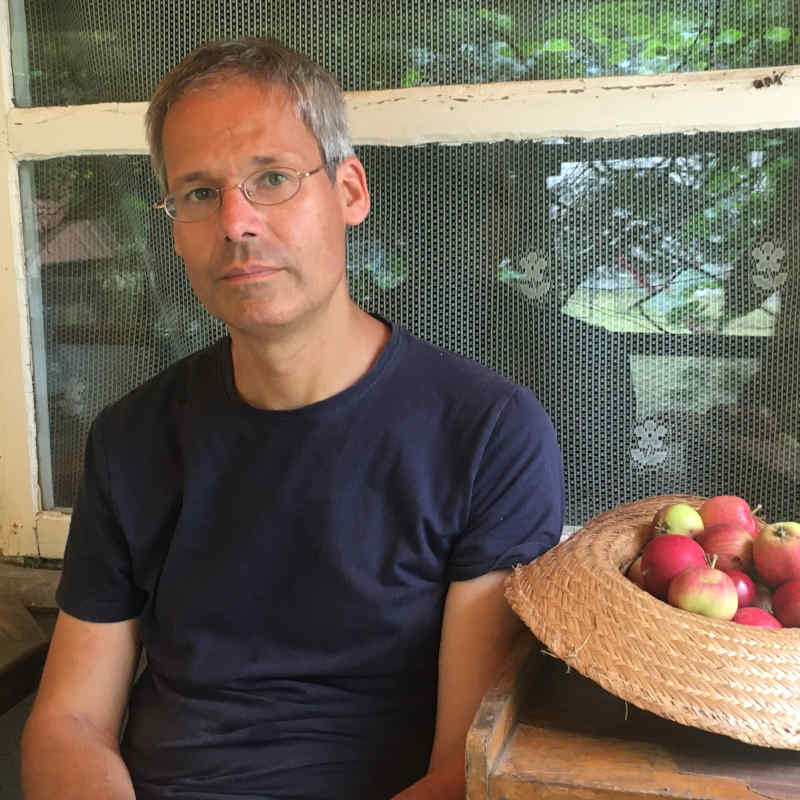Maciej Eder
an academic researcher

I am professor of linguistics at the Institute of Polish Language (Polish Academy of Sciences), Kraków, and visiting professor in digital humanities at the University of Tartu, Estonia.
Although my background is early modern literature (Polish and Latin), my main field seems to be computer-assisted text analysis or, to be precise, a cross-section of literature, quantitative linguistics, and computational methodology, with special attention paid to machine-learning techniques. Seemingly, the best description of such a combination of research interests can be referred to as Digital Humanities. What I find particularly interesting in this field, is that it re-opens some old research questions and tries to answer them using exact methodology, taking advantage of ever-growing computer power and analyzing amounts of data that our predecessors couldn’t even dream of. Next, I like Digital Humanities’ emphasis on team work and actual collaboration between scholars from different disciplines. Last but not least, I find Digital Humanities attractive because of its inclusiveness, or at least, awareness to implicit and explicit imbalances that affect academia; I do believe that the DH community has a potential to spread the ideas of inclusiveness to other academic fields.
My recent research is focused on computational stylistics, or stylometry. Specifically, I’m interested in the question of authorship: To which extent written texts preserve unique stylistic traces of people who penned them? How such an authorial “signal” can be effectively extracted from texts that were altered by editors, or imperfectly copied by several scribes? How large a text sample needs to be to reliably betray its author? What do we learn about a given language and its different registers? What do we learn about the language in general? Can stylometric methods be generalized to support literary criticism in the “distant reading” paradigm? These and similar questions are undertaken in my stylometric studies.
As a literary scholar (at least to some extent), I am interested in Polish literature of the 16th and the 17th centuries: critical scholarly editions being my main area of expertise. My major accomplishments in this field include a critical edition of 16th-century Polish translations of the Dialogue of Salomon and Marcolf, the treatise De libertate politica by Andrzej Wolan from 1572 (edited with prof. Roman Mazurkiewicz), as well as The Epigrams (Fraszki) by Jan Kochanowski – this collaborative work-in-progress should be out rather soon.
There is way too little time to get involved in several activities simultaneously. Therefore, I have to share my attention between a few major involvements: running the Institute of the Polish Language (Polish Academy of Sciences), chairing the Committee of Linguistics at the Polish Academy of Sciences, running a few research projects, as well as a large infrastructural project CLS INFRA, supporting the Computational Stylistics Group, etc. In rare moments of spare time, I develop the package Stylo, which is a made-to-measure computer program for performing stylometric analyses. I think in Polish, code in R, tweet in English, and live in Kraków, Poland.
news
| Jul 15, 2025 | Wow! Our team has just received the 2026 Antonio Zampolli Prize! According to ADHO, it was awarded to the stylo tool and the Computational Stylistics Group for their transformative impact on our field. |
| Jun 6, 2025 | Today our colleague Wojciech Łukasik successfully defended his PhD thesis – kudos! As his supervisor, I just feel proud. |
| Jun 2, 2025 | A farewell moment: our CLS INFRA project has just arrived to its final destination. However, let’s celebrate the accomplishment at the closing event, with a handful of superb presentations. |
| Apr 22, 2025 | The kick-off event of the DitiTS project, to be conducted at the Univerisity of Tartu, Estonia, for the next couple of years. Let’s hope it goes well! |
| Mar 5, 2025 | About to deliver a keynote speech at the DHNB2025 conference in Tartu, Estonia. Not that I’m very nervous, but… |
| Nov 29, 2024 | Grand news: today our colleague Joanna Byszuk sucessfully defended her PhD dissertation! It’s been a big pleasure, to serve as Joanna’s supervisor. |
| Sep 19, 2024 | It’s a big honor to deliver a plenary talk at the JADH2024 conference in Tokyo. |
| Aug 8, 2024 | Exploring different similarity measures, together with Jeremi Ochab: Manhattan, Euclidean, and their siblings: exploring exotic similarity measures in text classification. Digital Humanities 2024: Book of Abstracts, pp. 162–66. |
| Apr 4, 2024 | A paper discussing a new edition of the Epigrams by Cochanovius is finally out (in Polish). So far, it’s just a paper to introduce the edition, rather than the edition itself… |
| Apr 3, 2024 | The version 0.7.5 of the R package “stylo” released! Click here for further details. |
| Jul 10, 2023 | Thrilled to give a keynote speech about the CLS INFRA project at the TwinTalks2024 workshop organized by DARIAH. |
| Jan 13, 2023 | How distinctive are fictional characters in European drama? Check out our recent collaborative paper, available as arXiv preprint. |
| Jan 11, 2023 | Hear! Hear! Today our colleague Magda Kądzioła defended her PhD. It was a honor to supervise this project. Congrats, Magda! |
| Dec 10, 2022 | Proudly announcing our paper on Piotrowski’s law and modeling the dynamics of language change; the following arXiv preprint leads you to full version for free. |
| Nov 2, 2022 | Check out my new (yet simple!) method of boosting word frequencies; the paper will be presented next month at CHR2022. |